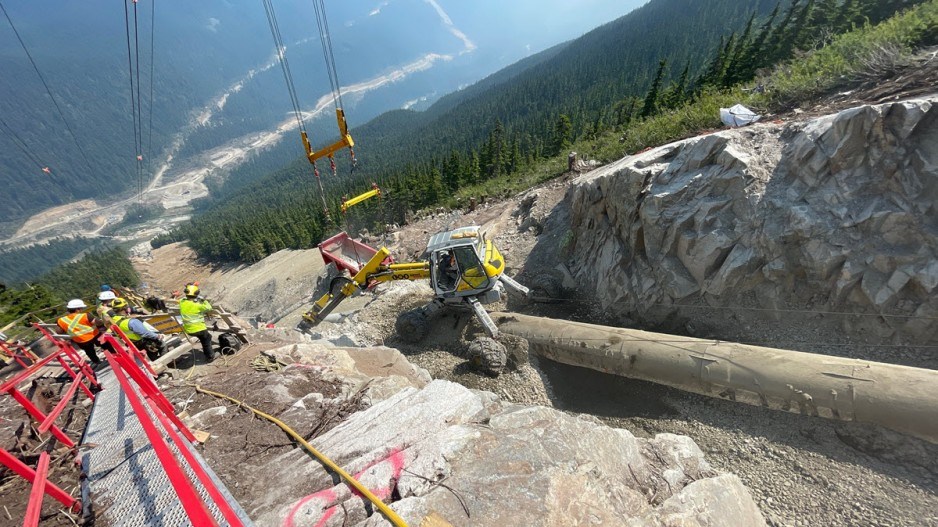While members of the Haisla and Nisga’a First Nations were talking about the economic benefits to their people from multi-billion dollar LNG projects in Kitimat and Prince Rupert at the BC Resources Forum in Prince George this morning, hereditary chiefs from the Gitanyow First Nation north of Terrace were issuing a press release saying these big industrial projects are increasing the cost of living for people living in the region.
“The promise of economic benefits comes with the harsh reality of rising housing costs, food prices, and more,” said hereditary Chief Simogyet Malii.
In addition to the LNG Canada project, which is nearing competition in Kitimat, the Haisla First Nation are moving ahead with another LNG project in Kitimat – Cedar LNG. And the Nisga’a First Nation are advancing the Ksi Lisims LNG project near Prince Rupert.
That latter project will require a new pipeline – the Prince Rupert Gas Transmission (PRGT) -- to be built. Gitanyowhereditary chiefs say the Ksi Lisims project is expected to require a regional workforce of 1,300 or more “for supplemental projects, including the PRGT pipeline and associated hydroelectric development construction.”
“As LNG developments escalate in our region, it is increasingly important that our understanding of their socio-economic impacts and our ability to manage those impacts keep pace with this rapidly developing sector,” Malii said.
The City of Terrace has also expressed concerns about the impact on things like city services from LNG Development.
As part of the BC Environmental Assessment process, the City of Terrace’s Economic Development office wrote that the LNG Canada project in Kitimat has resulted in increased economic activity for Terrace, but that it has generally been negative for the city, as the increased activity has strained city services without providing any additional revenue.
“The City of Terrace sees its role as a hub as detriment to Terrace and especially the quality of life for its residents,” the office writes in its submission. “Being the hub has allowed for massive inflation in professional and retail services, a strain on municipal infrastructure like roads, refuse disposal, lodgings and housing.
“Citizens have seen their municipal services erode due to higher costs for supplies and labour not because of the federal economy but rather local scarcity issues as the small amount of key suppliers and trades pivoted and or upright and moved to be closer to the LNG development.
“The influx of workers required for this type of development has seen housing in Terrace reach an all time high in prices and a vacancy rate of less that 1 per cent.”
“Gitanyow shares the concerns of the City of Terrace and also worries about the combined and cumulative impacts on food security from rising food costs in the stores and environmental and climate impacts to salmon - a mainstay of Gitanyow's diet,” the chiefs say in their press release.
“The Gitanyow Hereditary Chiefs call on the gas industry and the provincial government to balance economic benefits with community welfare.”





